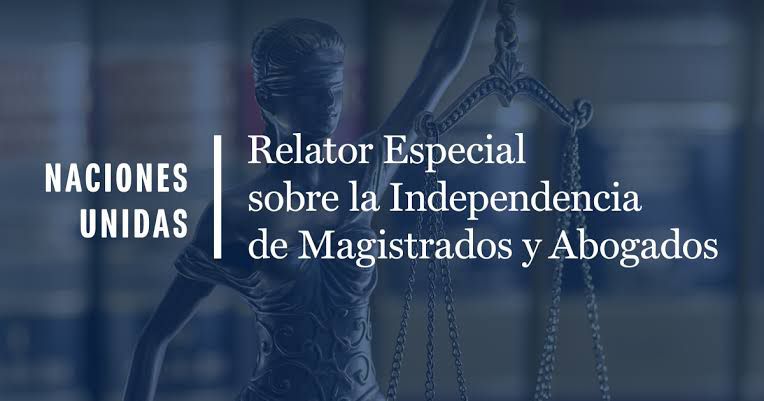June 17th, 2024
Re: Defense of District Judge Eduardo Alberto Osorio Rosado, on the United Nations’ Special Rapporteur on the Independence of Judges and Lawyers’ statement and request for information
Today, the United Nations Special Rapporteur on the Independence of Judges and Lawyers, Margaret Satterwaithe, made public a requirement of information to Mexican authorities on account of allegations and information received relating to “alleged intimidation of judges and presumptive undue interferences and pressures on judicial independence by means of verbal attacks, including threats, emanating from the Executive and Legislative branches of Government towards certain judges, indicating their opposition to rulings and decisions rendered by said judges”.
The Rapporteur has highlighted with concern the reports received relating to the use of the daily presidential presser, as well as other government channels, to label certain judges, predominantly Federal ones, as “corrupt” indicating that the federal judicial branch is “rotten” and accusing its members of acting “on criminal interests, complicity, unspeakable cohabitation, corruption and squandering of resources”, being echoed by other branches of Government at the Federal and Local levels, on the basis of the judicial decisions emitted.
The abovementioned, the call for information indicates, would serve the goal of “eroding public trust in the Federal Judicial branch”, even amounting to label the attacks as disincentives for judicial operators to take on certain cases “in fear of institutional or informal reprisals, when their rulings might contradict the interests of the Attorney General’s Office”
Federal District Judge Eduardo Alberto Osorio Rosado, whom the firm represents in several domestic and international procedures, has received credible threats emanated from organized crime and been displayed in numerous occasions in the presidential press conferences, which has directly led to him being subjected to criminal and administrative investigations. This persecution is currently being scrutinized by the Inter-American Commission on Human Rights.
Similarly, the requirement addressed to the Mexican Government notes the cases of several judges who have been libeled, threatened, investigated and subjected to disciplinary procedures, indicating a systematic pattern of encroachment on the independence of the judiciary potentially infringing on international norms and standards.
Rapporteur Satterwaithe refers that “without prejudice to the veracity of the allegations, [her office] expresses its concern for the claimed abusive use of government mass communication channels on the part of the Federal Executive to stigmatize and disparage the judiciary as corrupt or criminal, in a context in which the consequences of such declarations will, foreseeably, cause harassment and abuse with a view to exert undue influence in judicial decision-making”.
For all of the above reasons, the Special Rapporteur requests information from Mexican authorities concerning the allegations received, the safeguards put in place by the Office of the President to verify and fact-check the affirmations made, the measures implemented to guarantee judicial independence and the harmonization of the freedom of expression of authorities in a manner compatible with the rights and reputation of the judiciary. To that end, it gave México a time-frame of 60 days, after that timespan the communication and the replies obtained from the State will be made public, as is the case with the requirement.
The text of the full communication AL MEX 5/2024, dated April 16th 2024 can be accessed (in Spanish) on the following link:
https://spcommreports.ohchr.org/TMResultsBase/DownLoadPublicCommun icationFile?gId=28953

